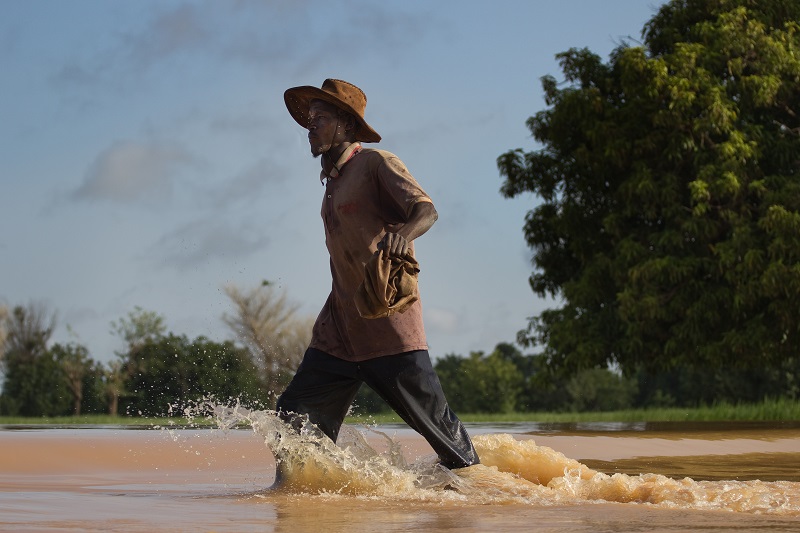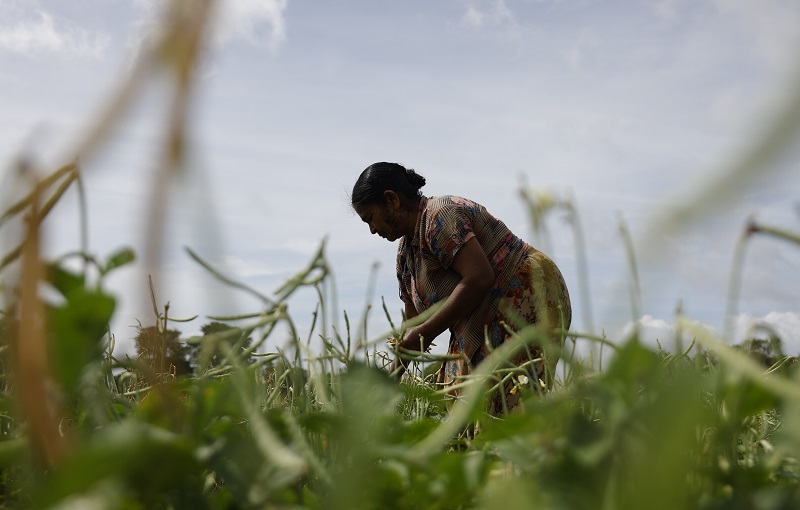The climate and health crises must be urgently addressed together
Climate change is often perceived as a threat to the future of our planet, but it is already driving humanitarian crises around the world and triggering unprecedented consequences on people’s physical and mental health. Floods, landslides, storms, droughts, epidemics, heatwaves, cold spells and air-land-water pollution directly damage human health. They also have a negative impact on health-determining factors, such as inequality, food production and access to clean water.
Reflecting the interconnectedness between climate change and health, the United Nations Climate Change Conference (COP-28) included a “Health Day” for the first time this year. The COP28 Presidency, in partnership with the World Health Organisation (WHO) and United Arab Emirates (UAE) Ministry of Health and Prevention, unveiled the ‘COP28 UAE Declaration on Climate and Health’, placing health at the heart of climate action and accelerating the development of climate-resilient, sustainable and equitable health systems. Over 120 countries backed the Declaration, including the European Union itself and its Member States. The EU also recognises the importance of addressing climate-related risks to improve health within its new Global Health Strategy. Indeed, at the beginning of November, the ‘One Health for All, All for One Health Conference’ organised by the European Commission underlined that human, animal, planet and environmental health cannot be dealt with separately.

But what about the concrete implementation of these commitments? According to the WHO, significant progress has been made at national level, but there is still the need to accelerate global action to reduce the threats posed by climate change on health and livelihoods. Utilising the momentum around COP-28 to be ambitious in addressing the consequences of climate change on health is crucial to advancing action on this urgent issue. Critically, the silos at political, institutional and donor level that are impeding coordinated responses at community level must be broken.
Around the globe, Red Cross and Red Crescent staff and volunteers witness daily how the most impacted people and communities are often those already living with vulnerabilities or at the margins of society: women and girls, children, minorities, lower-income communities, migrants and displaced persons, older populations, and people with underlying health conditions. They are the most at-risk in front of the compounding and cascading effects of climate change’s impact on health. It is now time to support climate response policies that prioritise the most vulnerable people, including their health.
It is essential to invest in climate-resilient health systems, to strengthen primary health care – including mental health and social services, water, health and sanitation (WASH), and workforce and community preparedness and surveillance. All stakeholders must work together to rapidly step-up action towards achieving the Universal Health Coverage goals, with specific focus on climate-induced disasters and public health emergencies that can no longer be treated as unpredictable. Increasing investments in early warning systems and anticipatory action is crucial to save lives and build long-term resilience.

The EU and the international community must act and apply a comprehensive One Health approach, as climate change and environmental degradation continue to exacerbate already tense contexts. This approach should be multisectoral, integrated and transdisciplinary to efficiently address the changes in land-use, environmental degradation (destruction of wild habitats and biodiversity loss), complex food production systems and intensified trade and travel that lead to increased risk of major pandemic outbreaks. It should also address the burden in low- and middle-income economies of endemic diseases of neglected pollution-related health risks.
Climate and health risks must be integrated in all investments and initiatives, at EU and global levels to produce the much-needed change for affected communities. This will increase sustainability and ensure the ability to withstand the increasing frequency and intensity of extreme weather events induced by climate change, responding to the “leave no one behind” promise. To do so, community engagement and a tangible people-centred approach should be at the core of EU’s priorities, both in its internal and external action. Working hand-in-hand with local and national actors, such as National Red Cross and Red Crescent Societies, is key. Only by collectively committing to meaningful accountability towards communities can we ensure that their role in changing mindsets towards resilience and sustainability is recognised and valued. In line with the COP28 UAE Declaration on Climate and Health and its own commitments in the EU Global Health Strategy, we call on the EU to take strong actions to urgently address the climate and health needs of people in situations of vulnerability.
Read our key messages on climate and health towards the EU and Member States.
For media inquiries, please contact Eva Oyón on: eva.oyon@redcross.eu or +32 2 235 09 22

